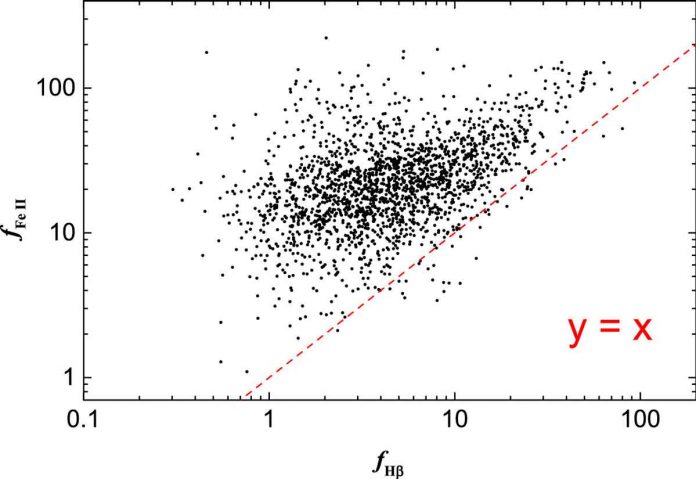Yunnan observatories of Chinese Academy of Sciences scientists investigated the virial factor in estimating the virial masses of supermassive black holes in active galactic nucleis (AGNs) through the redward shifted broad emission lines Hβ and Fe II.
The study was published in The Astrophysical Journal. It is widely believed that the virial factor is only determined by the gravitationally bound configurations of broad-line regions (BLRs) in AGNs. It may actually be the opposite.
Scientists measured the virial factor in determining the supermassive black hole masses. It is usually estimated by the reverberation mapping (RM) method or the relevant secondary methods. These methods use the average virial factor derived from the other methods for reverberation mapped nearby AGNs. It will cause a larger systematic uncertainty of mass.
Scientists found a positive correlation between the virial factor and dimensionless accretion rate of black hole. It is consistent with the prediction of considering radiation pressure force. There is a three-dimensional positive correlation of the virial factor with the dimensionless accretion rate and line ratio Fe II/Hβ. It indicates that the virial factor is likely dominated by the dimensionless accretion rate and metallicity.
The negative correlation will be expected naturally if the redward shift of Hβ is mainly from the gravity of black hole. Radiation pressure force from accretion disk radiation is a significant contributor to the virial factor.
These results show that the radiation pressure force on the gravitationally bound BLRs of AGNs is prevalent and non-negligible. These new findings help scientists to better understand the macroscopic effects of microphysical processes.

